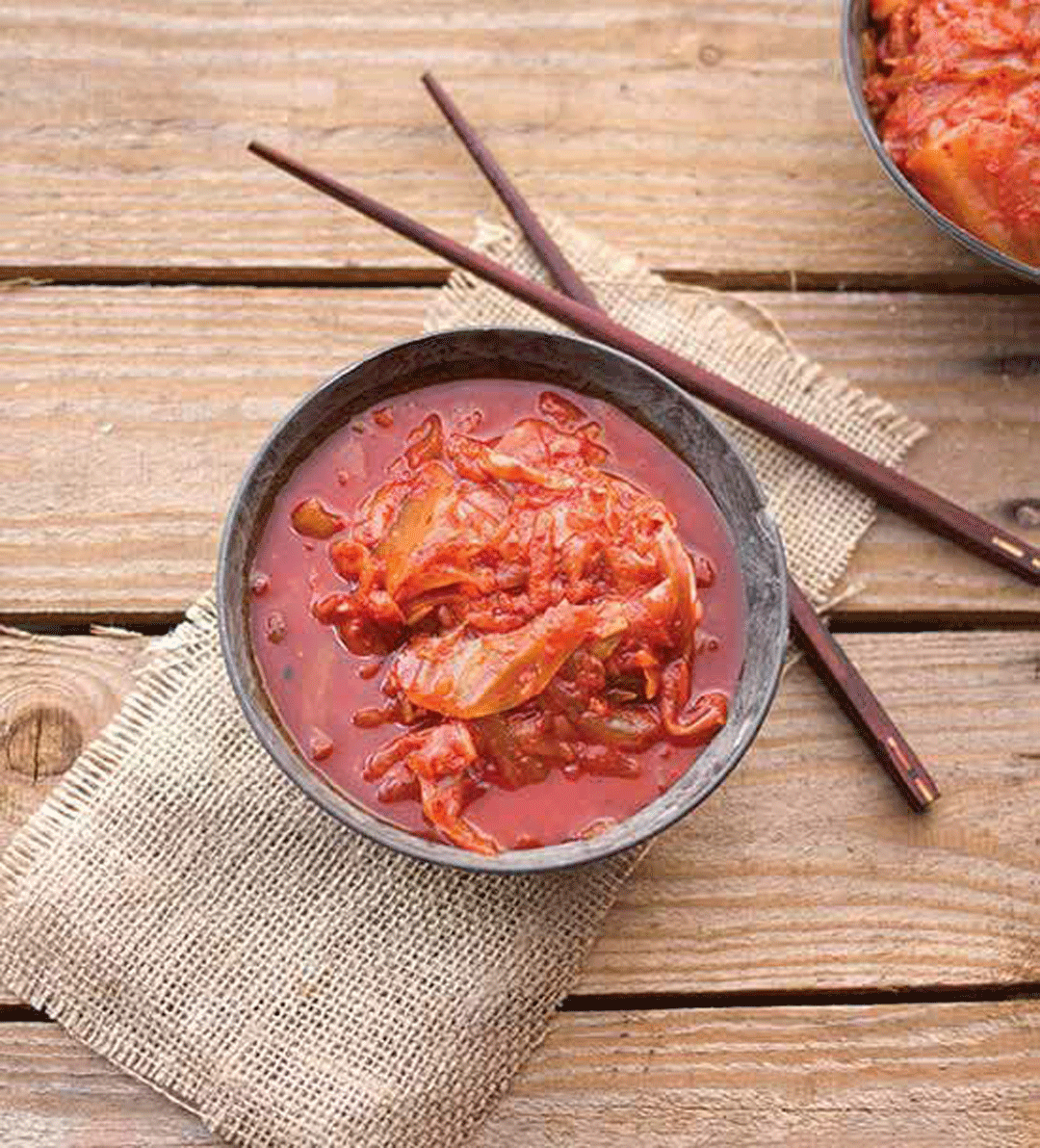 Kimchi is not a high-fat side, but fermented foods are a healthy addition to any diet, including a ketogenic diet. To make kimchi part of your keto-adapted lifestyle, just make sure to eat it with foods that are high in fat, such as seared pork belly. Another thing you could do is mix in 2 tablespoons of Spicy Mayo just before serving to increase the fat ratio. Think of it as a creamy, spicy slaw of sorts.
Kimchi is not a high-fat side, but fermented foods are a healthy addition to any diet, including a ketogenic diet. To make kimchi part of your keto-adapted lifestyle, just make sure to eat it with foods that are high in fat, such as seared pork belly. Another thing you could do is mix in 2 tablespoons of Spicy Mayo just before serving to increase the fat ratio. Think of it as a creamy, spicy slaw of sorts.
Ingredients
- 1 head napa cabbage
- 1 cup grated daikon radish (about 4 ounces)
- 4 green onions, chopped
- 3 tablespoons red pepper flakes (depending on desired heat)
- 2 tablespoons fine sea salt
- 5 cloves garlic, finely chopped
- 3 tablespoons grated fresh ginger
- 1 tablespoon fish sauce
- 1 teaspoon stevia glycerite
Special Equipment
- Food-grade rubber gloves
How to Make It
- Sterilize two 1-quart or eight 8-ounce mason jars. (I like to use small jars so that I can take individual portions with me for lunches.)
- Core the cabbage and chop into bite-sized pieces. Place the cabbage, daikon, and green onions in a large bowl. Sprinkle with the red pepper flakes and salt.
- Wearing food-grade rubber gloves, use your hands to massage the salt into the veggies until they start to sweat and moisture is released into the bowl. This takes about 10 to 15 minutes. Add the garlic, ginger, fish sauce, and sweetener (if using).
- Divide the kimchi mixture between the sterilized mason jars. Press the mixture down to get out air bubbles. Place a sterilized weight on top of each jar to keep the mixture submerged in the brine. (I place a measuring cup weighted down with a few clean rocks inside the mouth of the jar.)
- Cover each jar with a piece of cheesecloth and secure the cheesecloth in place. Set on the counter for 3 to 5 days, depending on how fermented you prefer your kimchi. The longer it ferments, the more pungent the flavor will become. Once it is fermented to your liking, remove the weights that are keeping the kimchi submerged. Cover the jars tightly and store in the fridge for up to 3 months.
| Nutrition Facts |
Serving Size 1 |
Nutritional Value Per Serving | Calories 209 kcal Calories from Fat: 178.2 kcal |
|
% Daily Value*
|
| Total Fat 19.8 g 57% |
Trans Fat 0.0 g |
carbohydrates 5.3 g 4% |
Dietary Fiber 1.9 g 5% |
Protein 2.7 g 5% |
* Above mentioned %DVs (Percent Daily Values) are based on 2,000 calorie food intake.
DVs (Daily values) may be vary depending upon individuals daily calorie needs. Above nutritional values are estimates and should only be used as a guide for approximation. They are not allfoodchef.com recommendations. Calculations are based on average weight of 194 lbs. and ages of 19 to 50 years. |
